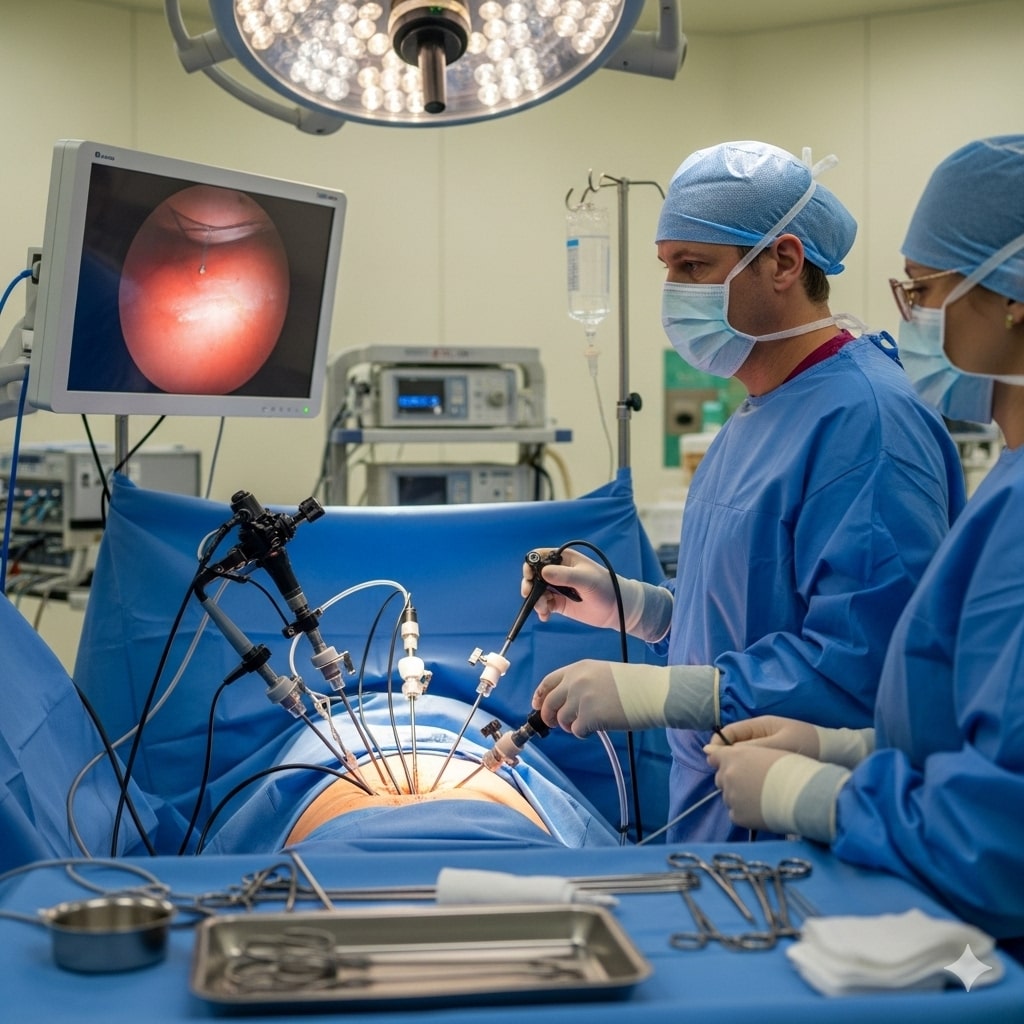HPB, GI, Advanced Laparoscopic
& Robotic Surgery
Legacy

15+
Year of Experties
Top Rated in
Ahmedabad
Dr. Vismit Joshipura
M.S., D.N.B. (HPB, GI, Advanced Laparoscopic & Robotic Surgery)
Master Surgeon to complex GI issues Advanced Laparoscopic Surgeries

Areas of Surgical Expertise
I believe healing needs hope & skill together.
Experience thoughtful care, right here in your city.
- Colorectal surgeries
- GI cancers
- Hernias
- Gallbladder diseases
- Emergency GI surgeries
- Upper GI surgeries
- GI conditions are disorders such as acid reflux, hernia, gallstones, appendicitis, inflammatory bowel disease, colon cancer, and more.
- Liver Surgeries
- Pancreatic Surgeries
- Biliary Surgeries
Surgeries may include liver resection, gallbladder removal, bile duct reconstruction, and pancreatic tumor surgery
These procedures are often complex and require advanced expertise because these organs are critical for digestion and metabolism.
- Laparoscopic cholecystectomy (including challenging anatomy like situs inversus)
- Laparoscopic management of Mirizzi Syndrome
- Other minimally invasive gastrointestinal procedures
Advanced laparoscopic surgery, often referred to as minimally invasive or “keyhole” surgery, is a modern technique where operations are carried out through very small incisions using a laparoscope—a thin tube with a camera—and specialized instruments.
This method allows surgeons to see detailed images of the inside of the abdomen on a video monitor and perform procedures with high precision. Compared to traditional open surgery, laparoscopic techniques result in less pain, reduced blood loss, smaller scars, shorter hospital stays, and faster recovery times.
Frequently
Asked Questions
What is Gastrointestinal & HPB Surgery?
Gastrointestinal & HPB Surgery focuses on treating diseases of the digestive system, including the stomach, intestines, liver, pancreas, gallbladder, and bile ducts. It covers both routine and complex surgical procedures
Are these surgeries safe, and what are the risks involved?
These surgeries are generally safe when performed by experienced surgeons. However, like all surgeries, there may be risks such as infection, bleeding, leakage at surgical sites, or complications related to anesthesia. Your doctor will discuss these risks with you in detail before the procedure.
What is the recovery time after Gastrointestinal or HPB surgery?
Recovery depends on the type and complexity of surgery. Minimally invasive surgeries usually allow quicker recovery (1–2 weeks), while major surgeries like liver or pancreatic resections may take 4–6 weeks or more.
What are the types of surgeries performed in this specialty?
Surgeries may include liver resection, pancreatic surgery, gallbladder removal, bile duct reconstruction, gastric surgery, colorectal surgery, and minimally invasive (laparoscopic or robotic) procedures.
Which conditions require Gastrointestinal & HPB Surgery?
Common conditions include liver tumors, pancreatic cancer, gallstones, bile duct obstructions, stomach or intestinal cancers, inflammatory bowel disease, and severe gastrointestinal bleeding.
How do I know if I need surgery or non-surgical treatment?
Your doctor will recommend surgery only after thorough evaluation through clinical examination, imaging, and lab tests. Some conditions can be managed with medicines or minimally invasive procedures, while others may require surgery.
Let’s Connect
We are here to provide clear guidance, timely assistance, and the highest standard of care.
Get in Touch
Get in Touch

